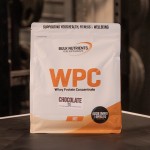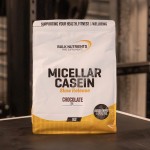Whey Protein vs Casein Protein: Which One Should I Choose?

Whey vs Casein protein
Firstly, whey protein is created when milk is utilised during cheese production. It contains everything soluble from milk following this process.
Casein protein is also derived from milk (with 80% of milk being casein and 20% coming from whey).
So now we know what both are, but how do they compare when put head to head?
Well, in this famous study, a real Holden vs Ford type showdown, researchers gave subjects 30 grams of either whey or casein to see how the protein was absorbed.
They found that whey protein was absorbed quickly, and casein much slower: whey protein stimulated protein synthesis by 68%, while casein clocked in at 31%.
Wow, so casein is basically worthless?
No. No. No. Let's not get too carried away. Because as with most things in nutritional science (and your dating life, and making money) it's all about the longer-term results, not the short-term stuff.
When the researchers measured the amount of leucine (the key amino acid behind protein synthesis) after 7 hours, they found casein consumption had a higher leucine balance than whey.
Basically, what this means is that after consuming whey protein, it will give you a fighter jet-like speed rapid hit of protein. The alternative casein will result in a greater protein accretion over a longer time period.
And interestingly, casein protein contains 8.9 grams of leucine whilst whey contains 11.1 grams. So this tells us that the digestion rate is important with a protein source too. There's no point having something super high in leucine if it's out of your system within one hour. Digestion rate is important as well as the leucine content.
But luckily, both of these protein sources pass the gains and "true to everyday life" test.
So, we know that whey protein digests quickly and casein slower, so where does that leave us in the real world? Which one should we choose?
Well, unless you're going for long periods without food (up to eight hours) whey protein would be my bet. If you have a really physical job and don't get enough time to eat, then a casein shake in the morning can be beneficial.

Moreover, casein might come in handy if you're dieting and find it's hard to stay full. But here's another cheeky little tip: given milk is 80% casein protein, you can mix your whey protein shake with milk.
Now, of course, there's not as much casein protein in a glass of milk (about 8 grams) so it's not exactly the same. But you'd still be getting come casein benefits without needing to acquire another supplement. And of course, keep the milk skim if you can, given you'd be watching your macronutrients on a diet.
I love a whey shake before bed to ensure satiety, no hunger issues, and some amino acids to keep my muscles company while I sleep.
And if you're getting enough protein per day (1.5 grams and up to 3 if you're trying to drop weight and are doing lots of resistance training) then you don't need the traditional bro advice of "a casein shake before bed so you don't waste ya gains, brudda."
But if you prefer casein over whey, no biggie. It will still help just as well: this study into female basketball players who undertook resistance training found no differences in muscle gained and fat lost when both protein options were compared.
And whatever you do, don't let anyone tell you protein powder isn't as good as "real food."
Whilst (obviously) whole foods need to make up a large part of our diet, whey and casein actually have a higher biological value than chicken, beef, fish, or any other source of foods. Biological Value is the measurement of the proportion of absorbed protein from a food -- kinda important when it comes to the pecking order of protein.
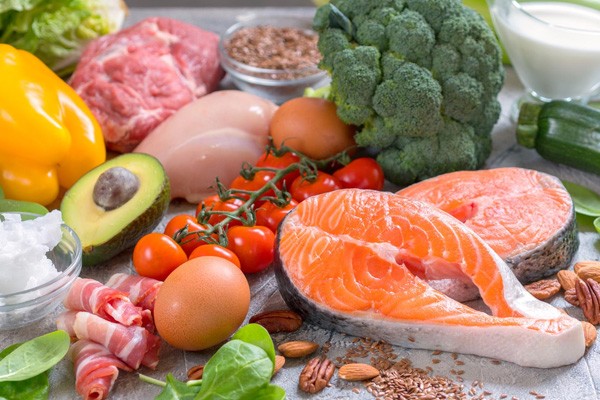
The bottom line between whey and casein powder
Is that whey protein is a fast-absorbing protein powder and casein is slower absorbing, with both delivering benefits. You likely don't need to buy both if you're getting enough protein from foods and are consuming one or the other already. Casein might be beneficial for those going for long periods without food. However, milk is 80% casein protein, so mixing your whey with that is also a good strategy. Both whey and casein are beneficial to muscle growth because of their high leucine concentration, and for the majority of people, whey might be the best option. Both have higher biological values than any whole food source of protein.

Dayne Hudson
Like many, Dayne was once desperate to lose weight and get into shape. But everyone he asked, everything he read, lead to the same place... nowhere.
His journey started there - researching science journals and completing a Sports Nutrition Specialist qualification so he could make weight loss easier.
References:
- Reale E, Govindasamy-Lucey S, Johnson ME, Jaeggi JJ, Molitor M, Lu Y, Lucey JA. Effects of the depletion of whey proteins from unconcentrated milk using microfiltration on the yield, functionality, and nutritional profile of Cheddar cheese. J Dairy Sci. 2020 Nov;103(11):9906-9922. doi: 10.3168/jds.2020-18713. Epub 2020 Sep 10. PMID: 32921459.
- Davoodi SH, Shahbazi R, Esmaeili S, Sohrabvandi S, Mortazavian A, Jazayeri S, Taslimi A. Health-Related Aspects of Milk Proteins. Iran J Pharm Res. 2016 Summer;15(3):573-591. PMID: 27980594; PMCID: PMC5149046.
- Hoffman JR, Falvo MJ. Protein - Which is Best? J Sports Sci Med. 2004 Sep 1;3(3):118-30. PMID: 24482589; PMCID: PMC3905294.
- Boirie Y, Dangin M, Gachon P, Vasson MP, Maubois JL, Beaufrère B. Slow and fast dietary proteins differently modulate postprandial protein accretion. Proc Natl Acad Sci U S A. 1997 Dec 23;94(26):14930-5. doi: 10.1073/pnas.94.26.14930. PMID: 9405716; PMCID: PMC25140.
- Norton LE, Layman DK. Leucine regulates translation initiation of protein synthesis in skeletal muscle after exercise. J Nutr. 2006 Feb;136(2):533S-537S. doi: 10.1093/jn/136.2.533S. PMID: 16424142.
- Wilborn CD, Taylor LW, Outlaw J, et al. The Effects of Pre- and Post-Exercise Whey vs. Casein Protein Consumption on Body Composition and Performance Measures in Collegiate Female Athletes. J Sports Sci Med. 2013;12(1):74-79. Published 2013 Mar 1.
Related Blogs
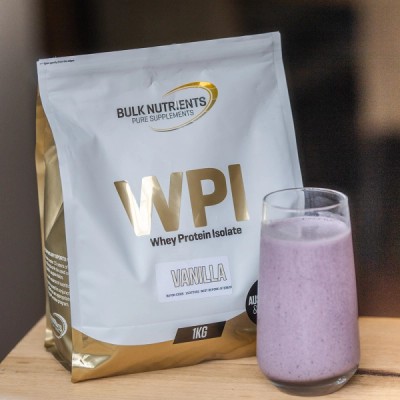
What is Whey Protein?
Posted by Ben Crowley
Estimated reading time: 10 minutes

Whey Protein Isolate vs Concentrate: A Detailed Comparison
Posted by Mason Brezinscak
Estimated reading time: 8 minutes
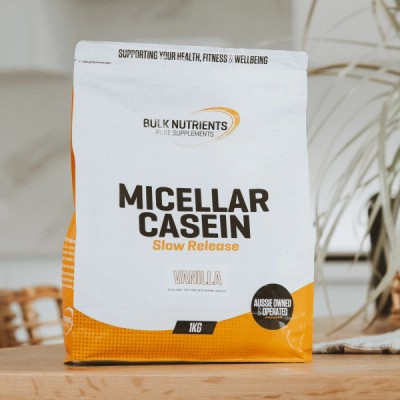
Why Should You Use Micellar Casein?
Posted by Bulk Nutrients
Estimated reading time: 7 minutes
